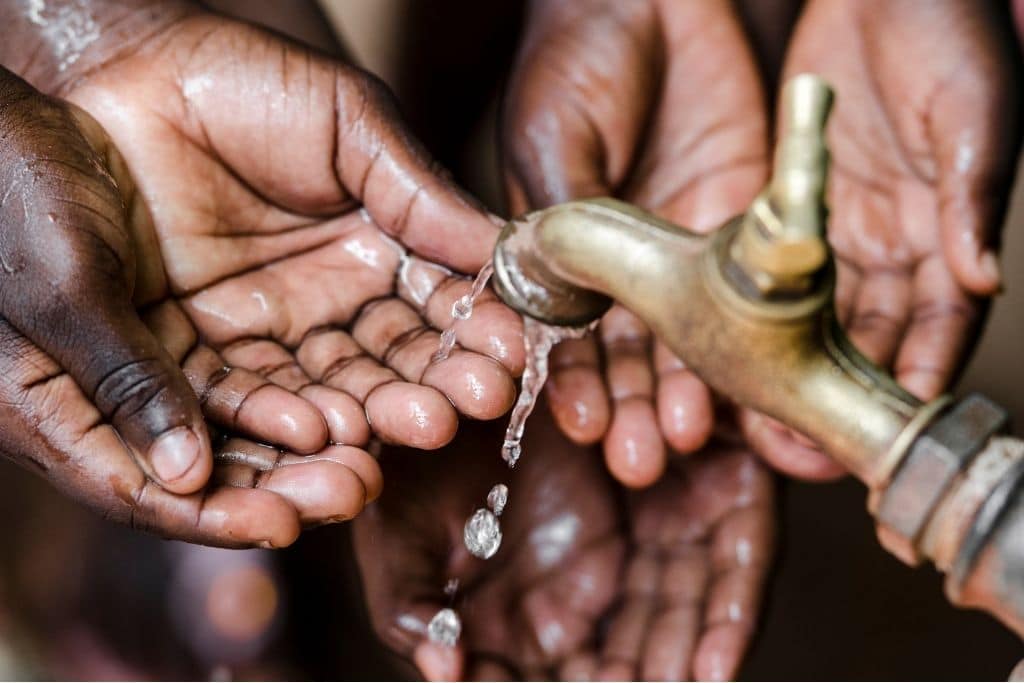
Vodafone Foundation donates €30,000 to support Mozambique over Cyclone Chido
Vodafone Foundation has pledged €30,000 to Save the Children in response to the devastation caused ...

The United Nations Environment Program (UNEP) outlined seven things countries and individuals can do to stem water shortfalls as the World Water Day was marked on March 22 under the theme of “Water for Peace”.
The seven things are protecting and restoring natural spaces; being more efficient with water, especially for farming; dealing with water leaks; exploiting unconventional water sources; tracking water quality; blending smart water management with climate change policies; and applying integrated approaches in decision-making.
As for Protecting and restoring natural spaces, the ecosystems that supply humanity with fresh water are disappearing at an alarming rate. Wetlands, peatlands, forested catchment areas, lakes, rivers and groundwater aquifers are falling victim to climate change, overexploitation and pollution. This is undermining their ability to provide communities with water. These natural spaces urgently need to be protected and those that have been degraded, revived through large-scale restoration.
Countries would be well served to develop specific, measurable targets for this work. Nations would ideally weave those goals into national plans to counter climate change, protect biodiversity, and avoid drought and desertification. This work is especially important for securing water supplies for cities, many of which are suffering from water shortages.
The UNEP urged to be more efficient with water, especially as agriculture accounts for some 70 percent of all fresh water used globally. Adopting water-saving food production methods, such as hydroponics, drip irrigation and agroforestry, can help water reserves stretch further. It is also helpful to encourage people to switch to plant-based diets, which generally require less water than those based around meat. Beef, for example, is thought to have one of the biggest water footprints, requiring as much as 15,000 liters of water to produce a kilo of meat.
As for dealing with water leaks, being efficient also means reducing the amount of water lost through leaky municipal infrastructure and building piping. There are no global data for the amount of water lost this way but national numbers suggest the total is massive. In the United States of America alone, household leaks waste nearly 1 trillion gallons of water per year.
The UNEP called for exploiting unconventional water sources. As supplies of lake, river and aquifer water dwindle, countries will need to get creative. This means taking advantage of undervalued water resources, such as by treating and reusing wastewater. Countries and communities can also implement rainwater harvesting, which involves collecting and storing water for use in dry spells. Desalinating saltwater is also an option in some places if done sustainably. The problem: the process often leads to the discharge of toxic brine into the ocean and increased greenhouse gas emissions from the energy required to fuel the process.
The UNEP also called for tracking water quality. Often, water is plentiful but is too polluted to be useful for drinking, manufacturing or recreation. Measuring water quality can help policymakers prioritize actions to clean up water sources. This evaluation can be complemented by satellite data, artificial intelligence and even citizen science. UNEP’s Freshwater Ecosystems Explorer provides decision-makers with water quality data, helping to spur action to protect and restore freshwater ecosystems.
The UNEP urged blending smart water management with climate change policies. Climate change is affecting rainfall patterns, aquatic habitats and the availability of good quality water. At the same time, peatlands and other watery carbon warehouses are being degraded, causing planet-warming emissions to spike and compounding climate change. To manage this destructive feedback loop, countries must emphasize the protection and restoration of carbon sinks. They should also harmonize their strategies for managing water with their policies for limiting and adapting to climate change.
The UNEP also called for applying integrated approaches in decision-making. Decisions about water cannot be made in a vacuum. Water is a key component in everything from power generation to industrial manufacturing to farming. So, countries must develop action plans that address water use and pollution across multiple sectors, tackling what experts call the water-energy-food-ecosystems nexus. This approach can help countries adopt coherent responses to water-related challenges while maximizing things like food production and energy generation.
“Solutions are within reach,” said Leticia Carvalho, Principal Coordinator of the Freshwater and Marine Ecosystems Branch at the United Nations Environment Program (UNEP). “But we need innovative thinking, greater political commitment and collaboration, and increased financing so that when it comes to water, no one is left behind.”
Vodafone Foundation has pledged €30,000 to Save the Children in response to the devastation caused ...
The European Commission has adopted a decision to disburse €1 billion in loans to Egypt following ...
Opening the Helwan University clinic brings the total number of Safe Women Clinics to 48 ...


اترك تعليقا